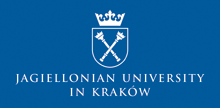Speaker
Bożena Zgardzińska
(Institute of Physics, Maria Curie-Sklodowska University)
Description
The Positron Annihilation Lifetime Spectroscopy (PALS) was used to investigate the uterine leiomyomatis, ovary, oviduct and normal tissues taken from patients after surgery, hysterectomy. The pilot studies have shown that a positron probe, commonly used in the PET imaging, may be useful in identifying not only the position of affected tisssue, but also the degree and type of these disease. Significant differences between normal and diseased tissues in all PALS parameters (lifetimes and intensities) were observed. For all studied patients it was found that the values of the free annihilation and orthopositronium lifetime are larger for the tumorous tissues than for the healthy ones.
Primary author
Bożena Zgardzińska
(Institute of Physics, Maria Curie-Sklodowska University)
Co-authors
Bożena Jasińska
(Institute of Physics, Maria Curie Sklodowska University)
Mr
Konrad Wysogląd
(Institute of Physics, Maria Curie-Sklodowska University)
Dr
Gustaw Chołubek
(Diagnostic Techniques Unit, Faculty of Nursing and Health Sciences, Medical University of Lublin)
Marek Gorgol
(Maria Curie-Sklodowska University, Institute of Physics, Department of Nuclear Methods, Pl. M. Curie-Sklodowskiej 1, 20-031 Lublin, Poland)
Prof.
Henryk Wiktor
(Department of Gynaecology and Gynaecological Endocrinology, Faculty of Nursing and Health Sciences, Medical University of Lublin)

